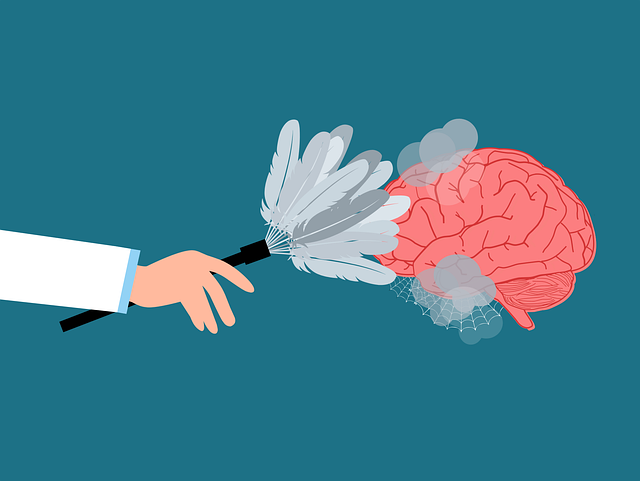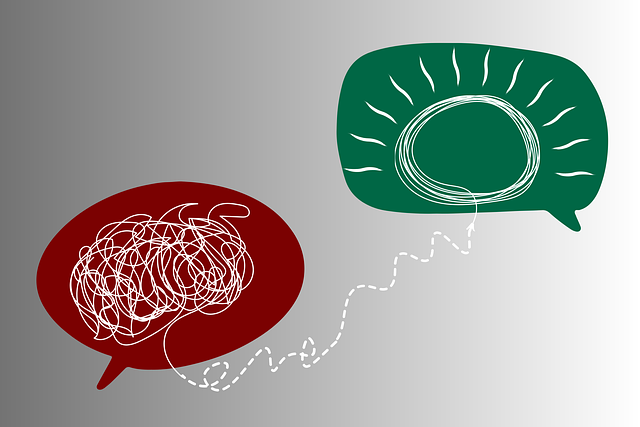Denver Obsessive Compulsive Disorder (OCD) therapy leverages innovative approaches like Resilience-Focused Methodology (RFM) and resilience-building exercises to offer effective treatment. This holistic approach shifts the focus from illness to strengths, fosters mental well-being, promotes stigma reduction, and empowers individuals to manage symptoms and improve daily functioning. Techniques include mindfulness meditation, social skills training, and crisis intervention, enabling clients to reclaim control over their lives despite OCD challenges.
“Discover how Resilience-focused Mental (RFM) techniques are transforming Denver Obsessive Compulsive Disorder (OCD) therapy. This comprehensive guide explores the power of RFM in addressing OCD, delving into its core principles and practical applications. We examine resilience building exercises, their implementation in clinical settings, and real-life success stories from Denver therapists. By understanding RFM’s relevance, you’ll gain insights into innovative approaches enhancing traditional OCD therapy.”
- Understanding RFM and Its Relevance in OCD Therapy
- The Role of Resilience Building Exercises
- Implementing RFM Techniques in Clinical Practice
- Case Studies: Success Stories from Denver OCD Therapy
Understanding RFM and Its Relevance in OCD Therapy

Understanding RFM, or Recovery-Focused Methodology, is pivotal in the context of Denver Obsessive Compulsive Disorder (OCD) Therapy. This approach prioritizes fostering resilience and promoting a positive view of recovery, shifting the focus from the illness to an individual’s strengths and capabilities. By emphasizing personal growth and meaning, RFM provides a powerful framework for individuals suffering from OCD to navigate their journey towards healing.
The relevance of RFM in OCD therapy is twofold. Firstly, it offers a crisis intervention guidance that helps patients develop coping mechanisms for acute distress. Secondly, it contributes significantly to mental illness stigma reduction efforts by encouraging self-esteem improvement and a sense of empowerment. Through RFM, individuals can learn to reframe their relationship with their symptoms, gain a deeper understanding of their mental health struggles, and ultimately, build resilience to effectively manage OCD symptoms in their daily lives.
The Role of Resilience Building Exercises

Resilience building exercises play a pivotal role in fostering mental well-being, especially for individuals grappling with conditions like Obsessive Compulsive Disorder (OCD) in Denver. These exercises are designed to equip people with the tools to navigate life’s challenges and setbacks, thereby enhancing their overall resilience. By participating in activities that promote emotional agility and coping strategies, OCD patients can learn to manage symptoms more effectively.
The goal of these exercises extends beyond mere stress management; they aim to reduce the Mental Illness Stigma Reduction Efforts and boost confidence. Through structured practices, individuals build mental fortitude, enabling them to confront and overcome anxiety-inducing situations. This proactive approach not only improves quality of life but also encourages a more positive outlook, allowing folks in Denver to reclaim control over their lives despite dealing with OCD or other mental health challenges.
Implementing RFM Techniques in Clinical Practice

In the realm of Denver Obsessive Compulsive Disorder (OCD) therapy, incorporating Robust Functioning Model (RFM) techniques has emerged as a powerful tool for clinical practice. This approach goes beyond traditional therapy methods by focusing on an individual’s resilience and coping mechanisms, which are essential in managing OCD symptoms. By integrating RFM, mental health professionals in Denver can offer more comprehensive care, enabling clients to develop effective strategies for navigating life’s challenges.
Risk Management Planning for Mental Health Professionals plays a pivotal role here. Through structured exercises, therapists guide patients in identifying potential triggers and developing personalized resilience-building techniques. Mindfulness Meditation and Empathy Building Strategies are often utilized within this framework. These practices not only enhance self-awareness but also foster a sense of calm and control, which is crucial for managing OCD. By combining RFM with evidence-based therapies, Denver’s mental health professionals can ensure their clients receive tailored support, ultimately leading to improved quality of life.
Case Studies: Success Stories from Denver OCD Therapy

Denver OCD Therapy has achieved remarkable success stories through implementing RFM (Resilience-Focused Mindfulness) and resilience-building exercises. These innovative approaches have proven effective in treating individuals struggling with Obsessive Compulsive Disorder (OCD), a condition characterized by intrusive thoughts and repetitive behaviors. The therapy focuses on empowering patients to develop coping strategies that enhance their overall well-being and daily functioning.
One of the key components of their treatment is Social Skills Training, which helps individuals navigate interpersonal interactions with confidence. By fostering cultural sensitivity in mental healthcare practice, Denver OCD Therapy ensures a supportive environment where every patient feels understood and valued. Crisis intervention guidance is also integrated into the program to equip clients with tools for managing acute distress, thereby reducing the need for emergency interventions. These holistic strategies have led to positive outcomes, allowing individuals to regain control of their lives and overcome the challenges posed by OCD.
Resilience is a powerful tool in managing and overcoming Obsessive-Compulsive Disorder (OCD). By employing RFM (Recollection, Focus, and Meaning) techniques and resilience-building exercises, as demonstrated in the case studies of Denver OCD Therapy, individuals can develop coping strategies to face their fears and live more fulfilling lives. Integrating these methods into clinical practice offers a comprehensive approach to OCD treatment, providing lasting results for those seeking relief from this debilitating condition.









